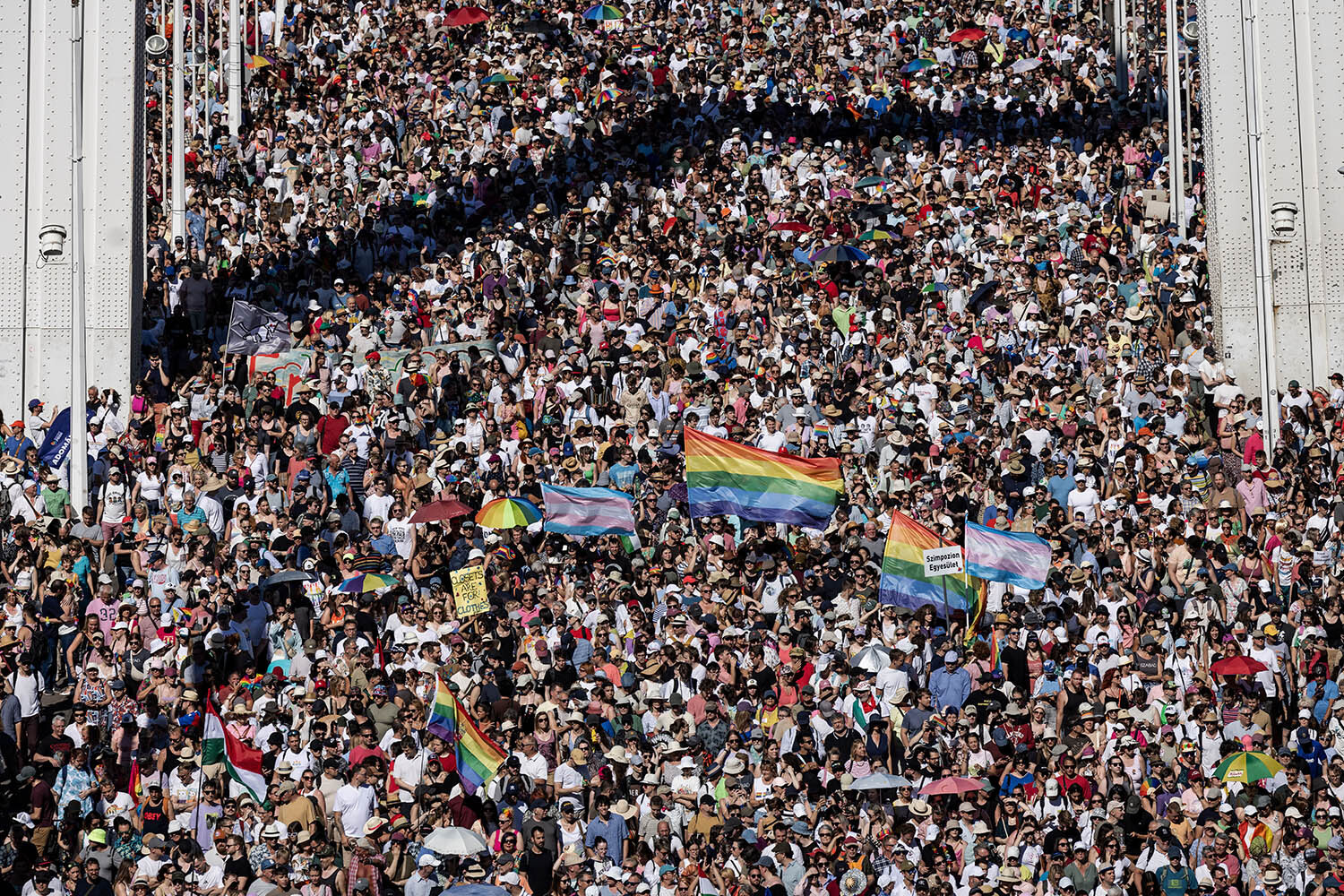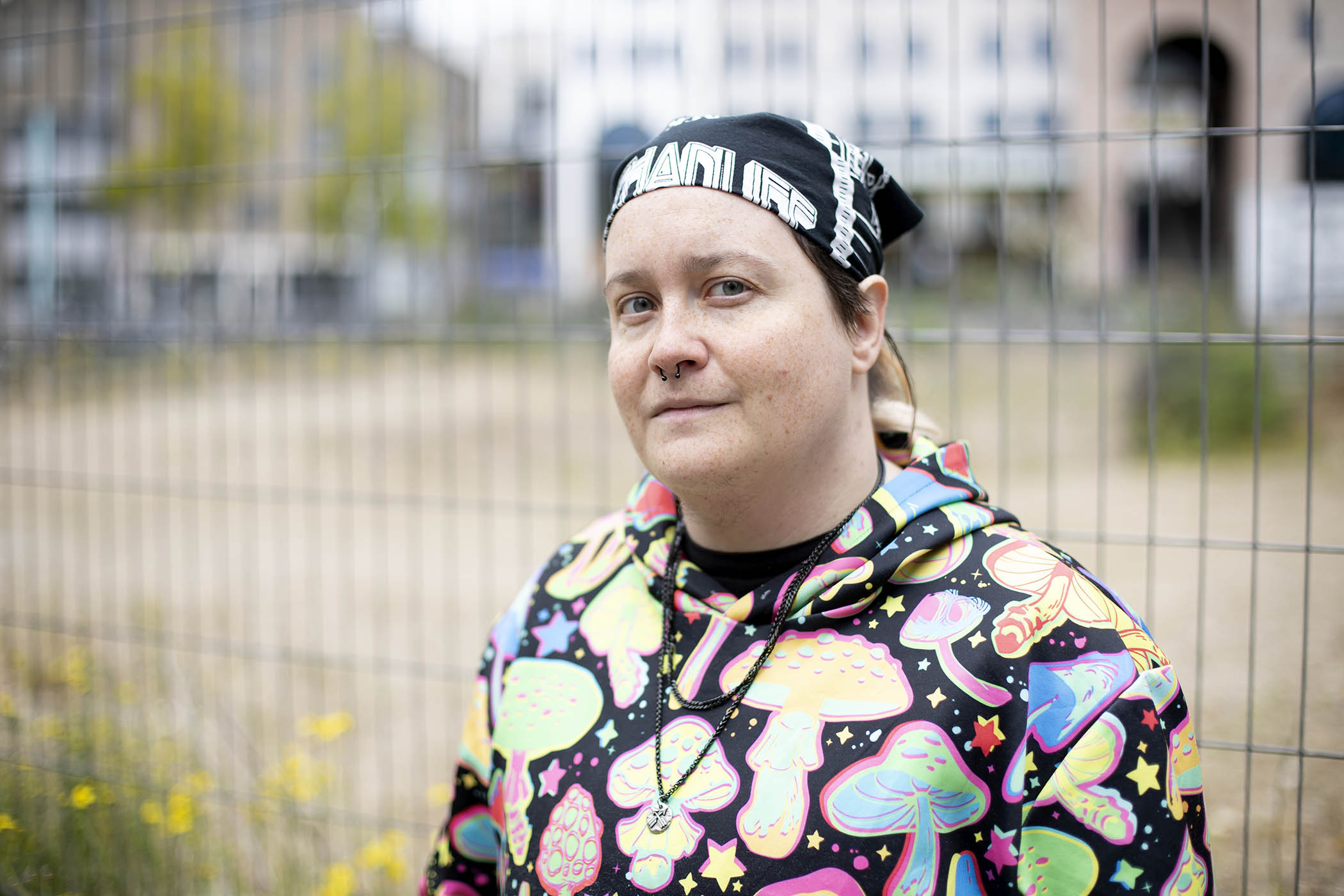Last weekend, an estimated 200,000 people attended Budapest Pride in defiance of Hungarian Prime Minister Viktor Orbán’s threats of “legal consequences” for anyone who attended.
The unprecedented turnout made it the largest march in the event’s 30 year history, according to organisers, as well as the largest anti-government protests in Hungary since the end of communism in the late 1980s.
Dr Zsolt Szekeres, a lawyer who represents the Hungarian Human Rights Foundation and attended Saturday’s march as a legal observer, told the Observer “it was impossible to put it in words” how significant it was to see such a huge crowd after months of concern that the march would happen at all.
“I was in a very privileged position that I was among the first people actually marching and there were moments when I turned back and saw this sea of people just flooding through the streets with no end in sight. It was an historic day”, he said.
Joining the demonstration alongside Hungarians like Dr Szekeres were more than 70 Members of the European Parliament and politicians from EU member states, including Spain, Ireland and the Netherlands.
The parliamentarians did so despite direct threats from Hungary’s Minister for Justice, Bence Tuzson, that they would be breaking Hungarian law if they attended the “legally banned assembly”.
By all accounts – except Orbán’s own – the ban has backfired. Hungary’s largest independent news outlet, HVG, called the Pride march “the funeral procession of the Orbán regime”.
Since Saturday’s march, the Hungarian prime minister has directed his harshest words at the European Union. In a private online group for his supporters, he accused the EU of orchestrating the event through opposition politicians.
Over the last fifteen years, Orbán and his ruling Fidesz party have restricted the rights of the LGBTQ+ community. In 2021, ahead of the last a general election, Fidesz introduced a law banning the promotion of homosexuality to anyone under 18, with language reminiscent of Russia’s restrictive “gay propaganda” law.
Newsletters
Choose the newsletters you want to receive
View more
For information about how The Observer protects your data, read our Privacy Policy
In February this year, with next year’s general election on the horizon, Orbán said that organisers shouldn’t bother planning the Pride march, claiming “it would be a waste of time and money”.
Then in March, Fidesz party members fast-tracked an amendment through parliament to the 2021 law which stated that any Pride event in Hungary would be “detrimental to children”. The government also approved facial recognition software to be used to identify attendees, raising serious concerns for civil liberty defenders.
“It really hit very close to home to many people who still remember what it was like to live under a government and regime that did not allow you to march on the street. People don’t want to go back to that”
“It really hit very close to home to many people who still remember what it was like to live under a government and regime that did not allow you to march on the street. People don’t want to go back to that”
Dr Zsolt Szekeres, Hungarian Human Rights Foundation
But that didn’t stop the mayor of Budapest and vocal critic of Orban’s government, Gergely Karácsony, from trying to find a legal loophole. With Pride only weeks away, Karácsony announced it would go ahead as a municipal event to mark Hungary’s annual “freedom day”, which usually commemorates the withdrawal of Soviet troops in 1989. Orbán and his senior ministers nonetheless threatened to imprison organisers for up to a year and fine anyone who attended up to €500.
That wasn’t enough to deter the thousands who turned out last Saturday. In fact, Dr Szekeres believes it was these threats that increased attendance among Hungarians who would never usually attend Pride.
“It really hit very close to home to many people who still remember what it was like to live under a government and regime that did not allow you to march on the street. People don’t want to go back to that”, he said.
Political analysts have interpreted Orbán’s pride ban as an effort to win back conservative voters in the face of increasing support for the new opposition party, Tisza, led by former Fidesz member Peter Magyar, which currently has a 15-point lead in the polls.
Magyar, who described being questioned about Orbán’s Pride ban as a “trap”, released a statement on Sunday calling the prime minister “the king of pride in Europe”, because “no one else has ever managed to mobilise such a large crowd for a demonstration against himself by inciting hatred".
Although the turnout was unprecedented, for LGBTQ+ campaigners and human rights lawyers like Dr Szekeres the battle is only just beginning. “What happened on Saturday was fantastic. It was everything. But what we shouldn't forget is that the legal basis for banning not just Budapest Pride, but all gatherings and demonstrations in support of LGBTQ+ rights”, he warned.
Photograph by Janos Kummer/Getty Images



